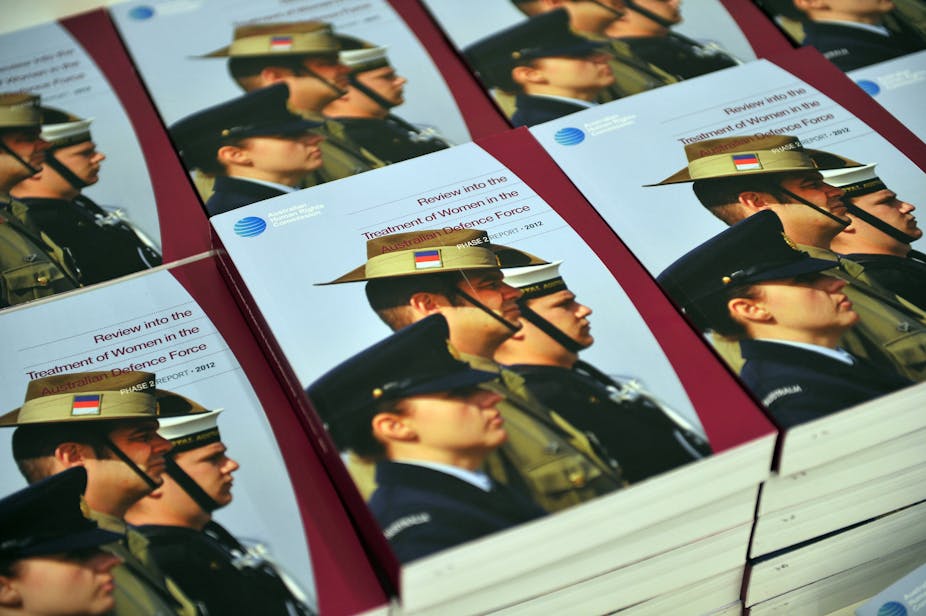Gender diversity targets are required to ensure women have the same opportunities as men in the Australian Defence Force, argues Sex Discrimination Commissioner Elizabeth Broderick, who today released the Australian Human Rights Commission’s report reviewing the treatment of women in defence.
“In selected areas, targets are crucial to ensuring that women have the same opportunities as men in all aspects of ADF life,” Commissioner Broderick said.
“Without these targets, there will be no change - men and women will not be operating on a level playing field.”
Commissioner Broderick said despite progress over the last two decades, she was not confident women can and will flourish in the ADF.
The report makes 21 recommendations, including removing minimum periods of service to offer increased flexibility, incentives for the defence force recruiting division to recruit more women, and the establishment of a dedicated sexual misconduct prevention and response office.
The Government and Defence have agreed in-principle to accept the recommendations of the review.
Michelle Smith, who is an Australian Research Council Postdoctoral Fellow in the School of Culture and Communication at the University of Melbourne, said thinking that equality of treatment will lead to equal outcomes for women in the defence force is challenging.
Despite views that it should be an “equal playing field” for all, Dr Smith said quotas and additional encouragement and resources may be required to improve levels of participation.
“People don’t want special treatment but it’s already different treatment, it’s a male institution in a male world,” Dr Smith said.
However Dr Smith said she could foresee resentment if women are perceived to have lighter conditions, in the case of removing minimum periods of service, which could lead to greater disharmony within members of the defence force.
“Ultimately you need to have a harmonious relationship between men and women if you are to have more women serving,” Dr Smith said.
Natalie Sambhi, an analyst with the Australian Strategic Policy Institute, said there’s a risk in the ADF that quotas might undermine coherence.
“Women should be recruited where and when they add value to the defence force.”
But she said adding flexibility by removing minimum periods of service would better suit today’s young people.
“For young people nowadays where both people are in careers that might take them places, giving them some flexibility might be good. But ultimately, like any other employer, the Defence Force should get a return on its investment.”
The comments of Natalie Sambhi, a former Department of Defence analyst, represent her personal views only.

